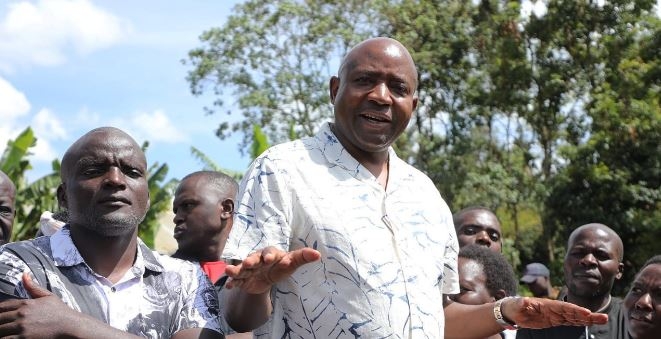
Justice Bahati Mwamuye issued the directive on November 10, 2025, suspending all recruitment activities until the matter is heard.
The legal challenge was brought by London-based activist Eliud Matindi, who argues that according to Article 246(3) of the Constitution, the authority to hire police constables lies with the National Police Service Commission (NPSC), not the Inspector-General of Police.
“The authority to recruit police constables lies with the National Police Service Commission, as provided under Article 246(3) of the Constitution. That mandate cannot be taken over or exercised by the Inspector-General,” Matindi said.
The recruitment exercise in question was announced by the Inspector-General on November 4, 2025, despite the fact that the NPSC had previously launched a recruitment campaign in October, which was suspended by the Employment and Labour Relations Court.
In the earlier ruling, the court declared that the National Police Service Commission (NPSC) has no power to recruit, train, employ, assign, promote, suspend, or dismiss members of the National Police Service (NPS).
The court said such functions fall exclusively under the independent command of the Inspector General (IG) as provided in Article 245 of the Constitution.
A permanent injunction was also issued restraining the NPSC from conducting any recruitment or related human resource processes, including the implementation of the recruitment advertisement published on September 19, 2025, through Legal Notice No. 159, which the court found unconstitutional, null, and void.
In her judgment, Justice Helen Wasilwa of the Environment and Land Court on Thursday, Ocotber 30, 2025, said the Constitution clearly demarcates the roles of the Inspector General and the National Police Service Commission, and that any overlap would interfere with the IG’s independent command over the Service.
She observed that the NPSC, while exercising oversight and administrative functions, cannot usurp the operational powers constitutionally reserved for the Inspector General.
“The Commission is not a national security organ under Article 239(1) of the Constitution. Its role is limited to policy, oversight, and disciplinary control—not recruitment or deployment,” Justice Wasilwa said.
The court ruled that allowing the Commission to handle matters of recruitment and deployment would compromise the operational independence of the police, which the Constitution safeguards to ensure professionalism and accountability within the security sector.
Matindi contends that the move by the Inspector-General was unauthorised and therefore unlawful.
Justice Mwamuye’s conservatory order calls for the recruitment notice to be suspended, and for all involved parties — including the Inspector-General, the NPSC, and any agents — to cease further planning or implementation of the exercise.
The Respondents, including the Inspector-General and the NPSC, were ordered to file their responses to the application and petition on or before December 11, 2025.
“The Petitioner shall serve the Respondents and the Interested Parties immediately. A conservatory order is hereby issued suspending the Notice of Recruitment,” said Justice Mwamuye.
The matter will be mentioned on January 22, 2026, to confirm compliance by all parties and to allow the Court to issue instructions for the accelerated hearing of the case.
Observers say the outcome of this case will carry significant implications not just for the current recruitment cycle, but for how recruitment authority is divided between the NPSC and the Inspector-General going forward.













